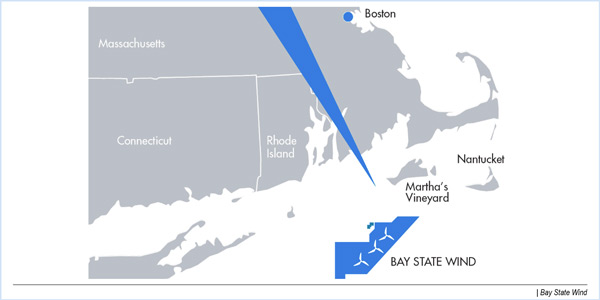By Julie Gromer
Despite one of the warmest-ever first quarters in New England, Eversource Energy reported 2016 earnings of $942.3 million ($2.96/share), up 7% over 2015 earnings of $878.5 million ($2.76/share). Revenues fell 4% to $7.64 billion.
The 2015 earnings included 5 cents/share in integration costs. The company, which had previously operated under its six electric and gas distribution companies in Massachusetts, Connecticut and New Hampshire, rebranded under the Eversource name in February 2015. (See Northeast Utilities Rebranding as Eversource Energy.)
In the fourth quarter, the company reported earnings of $229.2 million ($0.72/share), up from $181.8 million ($0.57/share) in 2015 but below the Zacks consensus estimate of 75 cents. Fourth-quarter revenues of $1.78 billion also fell short of analysts’ expectations of $1.97 billion.
The company largely offset the negative impact of the warm weather in the first quarter by managing operating costs, Eversource CEO Jim Judge said.
Eversource projected 2017 earnings per share of between $3.05 and $3.20 and long-term EPS growth through 2020 of between 5 and 7%.
“2016 was a year of continued strong earnings and dividend growth and the emergence of new opportunities for us to be the catalyst for clean energy development in New England,” Judge said. “We envision 2017 to be a year during which many opportunities to enhance service and clean energy options for our customers advance, from bringing clean hydroelectric power into the region, to enabling solar, energy storage, natural gas expansion and offshore wind development.”
In December, the company announced it had become 50-50 partners with Denmark-based DONG Energy in Bay State Wind, which plans to develop an offshore wind site south of Martha’s Vineyard. The 300-square-mile site has the potential to develop at least 2,000 MW. Bay State Wind expects to bid the project into the initial Massachusetts solicitation for offshore wind this summer.
The company is also an investor in Spectra Energy’s proposed Access Northeast natural gas pipeline, which has stalled following legal setbacks in Massachusetts and New Hampshire. Connecticut, Rhode Island and Maine passed legislation allowing their electric distribution companies to sign long-term contracts for natural gas pipeline capacity, but in August, the Supreme Judicial Court in Massachusetts ruled that the Department of Public Utilities does not have the authority to review and approve such contracts. In October, the New Hampshire Public Utilities Commission said it could not approve such contracts under current law.
“One option involves pursuing a change in the laws in Massachusetts and New Hampshire so that they align with statutes in Connecticut, Rhode Island and Maine,” said Lee Olivier, executive vice president for enterprise strategy and business development. “We also appealed the New Hampshire PUC order to the state Supreme Court, which agreed last week to consider the case. Another avenue is to secure contracts with natural gas distribution companies in Massachusetts and other New England states.”
Eversource is also an investor in the Northern Pass transmission project to bring Canadian hydropower into New England. Last month, the New Hampshire Supreme Court upheld a lower court ruling that the project had the right to bury a power line under a state highway. Hearings on the project are expected before the New Hampshire Site Evaluation Committee between April and July. The company hopes to have a permit from the Department of Energy late this year, with construction beginning early in 2018 and operations commencing in late 2019.





